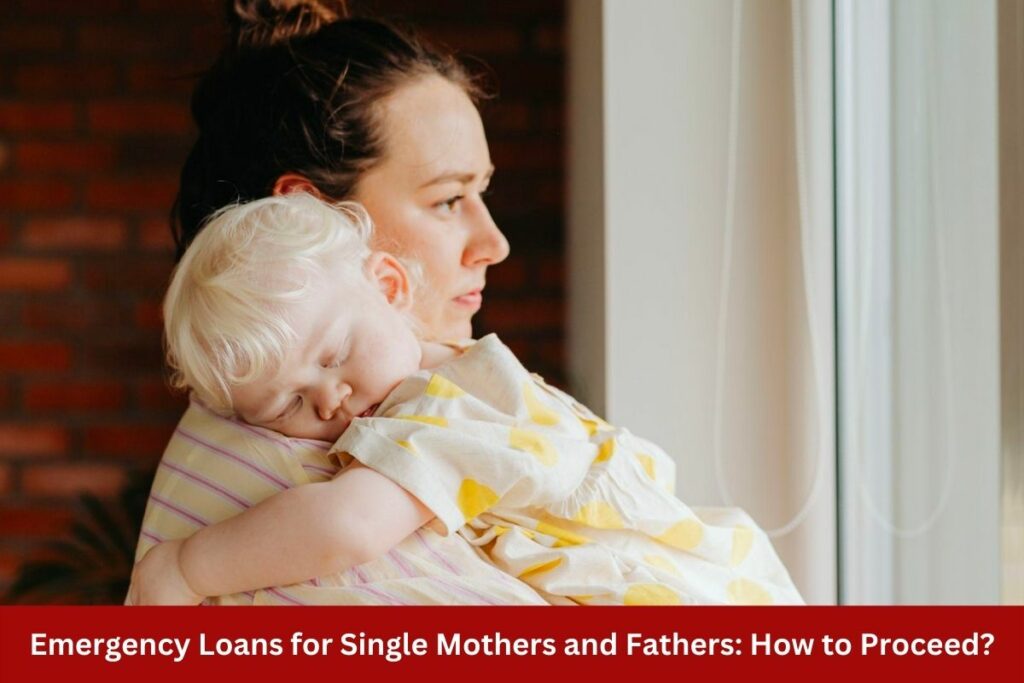Student loan debt is one of the most significant concerns confronting Americans today. Pew Research estimates that around 20% of student loan debtors fail. You may be tempted to disregard your debt, but this is a poor decision that will have major implications.
In many ways, defaulting on a student loan is similar to failing to pay off a credit card. However, in one critical regard, it might be considerably worse.
The federal government ensures most student loans, and the feds have authority that debt collectors can only dream of. While it is unlikely to be as severe as having armed marshals at your door, it may be rather uncomfortable.
This is what occurs.
- You may be eligible to get aid from federal student loan assistance programs to assist you in repaying your debt before it defaults.
- Notify your lender if you anticipate having difficulty repaying your student loan.
- Failure to repay your student loan within 90 days causes the debt to become overdue, lowering your credit score.
- After 270 days, the student loan becomes delinquent and may be turned over to a collection agency for collection.
First, You’re ‘late.’
When a loan payment is 90 days late, it becomes “delinquent.” This information is sent to each of the three main credit bureaus. Your credit rating will suffer as a result.
It implies that any new loan applications may be refused or granted only at the riskier borrowers’ higher interest rates. A poor credit rating might have ramifications in other areas of your life.
Employers often analyze candidates’ credit scores and use them to determine their character.
Likewise, mobile phone service companies do, and they may reject the contract you want. Utilities may require a security deposit from clients who are deemed uncreditworthy. A potential landlord may reject your application.
The Account is ‘In Default’
When a payment is 270 days late, it is considered “delinquent.” Your account is sent to a collection agency by the financial institution to whom you owe money.
The agency will make every effort to collect from you, except acts forbidden by the Fair Debt Collection Practices Act (FDCPA). Additionally, debt collectors may charge fees to fund the expense of collection.
The federal government may not intervene for years, but its powers are significant when it does. It has the authority to confiscate your tax refund and apply it to your unpaid debt.
It has the authority to garnish your paycheck, which means it may contact your employer and arrange for a part of your income to be paid directly to the government.
What To Do
These catastrophic effects are avoidable, but you must act quickly before your loan defaults. Numerous government programs are available to assist. They are available to anybody who has federal student loans, like Stafford and Grad Plus loans, but not to parents who borrowed on behalf of their children.
Income-Depending Repayment (IBR), Pay As You Earn (PAYE), and Revised Pay As You Earn (REPAYE) are three similar schemes that lower loan payments to an affordable level based on the applicant’s income and family size.
The government may even cover a portion of the loan’s interest and cancel any residual debt once you’ve made all of your payments.
The amount is forgiven after twenty to twenty-five years of payments. Payments may be halved, but only if the debtor is a very low income.
The Public Service Loan Forgiveness Program is intended for those who work in the public sector, whether for the government or a nonprofit organization.
Participants may be eligible for federal debt forgiveness after ten years on the job and ten years of payments.
The details of these government programs, as well as eligibility information, are accessible online. It’s critical to realize that none of these programs are accessible to those who have defaulted on their student loans.
A prudent first step is to contact your lender as soon as you know that you may be having difficulty making your payments. The lender may work out a more manageable repayment schedule with you or direct you to one of the government programs.
One Upside
There is a positive aspect to student debt. If you follow up with your payments, your credit score will rise.
According to Experian, individuals who have student loan debt have a better credit score on average than those who do not have student loan debt. A young adult’s credit history might be critical in securing their first vehicle loan or house mortgage.
Worst-Case Procedure
An actual worst-case scenario included a guy who found himself confronted by armed United States marshals on his doorway. He borrowed the money 29 years ago and was unable to return it.
Finally, the government filed suit. The US Marshals Service said that repeated efforts to serve him with a court order failed. In 2012, when contacted via phone, he declined to appear in court.
That year, a court issued an arrest order for him, citing his failure to appear. When he was ultimately challenged outside his house by marshals, he told CNN, “I ran inside to grab my gun because I had no idea who these people were.”
That is how you wind yourself facing an armed posse of US marshals, backed up by local police, for failing to repay a $1,500 student loan. For the record, the individual said he believed he had paid the amount, was unaware of the arrest warrant, and had no memory of the phone conversation.
Even this tragic narrative, however, has a pretty cheerful conclusion. Finally, after being hauled into court, the individual consented to resume repaying his old student debt, plus accumulated interest, at a rate of $200 per month. After 29 years, the $1,500 debt had increased to around $5,700.
Unique Reviews
Although the student loan issue seems grim, the Biden administration has supported many debt-relief strategies, including saving up to $10,000 in undergraduate and graduate student loans.
Additionally, the administration’s website states, “Individuals earning less than $25,000 per year would not be required to make any payments on their undergraduate federal student loans and will also not accumulate interest on those loans under the Biden proposal.
The remainder of the population will contribute 5% of their discretionary income above $25,000 toward their debts. After twenty years, the remaining debts for those who have made timely payments under the scheme will be 100 percent “provided.”
Must check: Banks That Will Help To Grow Your Wealth the Fastest! Check Here!
Check out some live examples of some cities and areas here:
Maggie – Los Angeles, California
Maggie has earned a bachelor’s degree in fine arts and graduated with little more than $50,000 in student debt.
“My parents took out a loan to pay for my college education. There was a presumption [that I would repay it]. It was my education and my degree, neither of which benefited them. It was a tremendous kindness, and there was never any question in my mind that I would repay them, “she asserts.
“My parents work hard to earn their money, and I feel that parents should not be financially responsible for their children’s education.
Giving money is not inherently immoral, but expecting people to repay a loan is a major no-no! for a degree they never earned. True, but no. That is not acceptable, “Maggie’s story continues.
She claims that if she could eliminate all of her student loan debt tomorrow, she would save for a home more rapidly. “As in much faster. It’s quite difficult out there for millennials, and really for anybody else, “Maggie explains.
“Additionally, I’d be able to begin accumulating an emergency fund. When situations occur, credit cards are pulled out, and we all know what that may result in.”
Suzy – Salt Lake City, Utah
Suzy has a master’s degree in fine arts. She owed nothing from her undergraduate degree since her parents assisted her in paying for it. However, she owes around $40,000 for her master’s degree.
“My parents wanted to assist pay for my undergraduate education if I attended a school where they could afford to help,” she explains.
“I paid for graduate school entirely via loans, and I had the rose-colored glasses perspective that I would easily be able to return those debts after I earned my degree.”
That was not the case. “Because I lacked the additional funds necessary to repay my student loan debt, I entered default,” Suzy explains. “I divorced shortly after completing my master’s degree.
Before pursuing my school, I had very little job experience since I was the primary caretaker for our five children. Although post-divorce support payments helped, they fell well short of paying living expenditures, especially when paired with income from my part-time employment.”
Suzy describes repaying her debts as “difficult,” adding that “the amount was scary.” She skipped a year’s worth of payments. However, circumstances changed.
“When a loan repayment officer phoned me at my place of employment, it terrified me enough to confront the issue,” she explains. “I enrolled in the program to rehabilitate my credit by paying $10 a month for nine months.”
“I was then allowed to enroll in the income-driven repayment plan,” she adds. “The total monthly payout amounted to nothing.
While I’d prefer to pay off my debt, I’m now only able to make minimum payments that barely scratch the surface of what I owe. My schooling aided me in obtaining my present full-time employment, for which I am glad, but the lack of years of experience means that I am still on the bottom end of the wage range and working my way up.”
Suzy adds that she would have “peace of mind that I will be able to retire eventually without her college debt.” “I’m in my mid-40s, and I’m afraid I’ll have to work in some form for the rest of my life just to have a roof over my head.”
Gwen – New York, New York
Gwen is a graduate with a master’s degree. She graduated with $51,410 in student loan debt and still owes $39,303.80. “When I initially relocated to New York City eight years ago, I went a year without paying my loan until I earned enough money to begin repaying it,” Gwen explains.
“When I graduated from graduate school, my parents gratefully, or so I believed, paid off my debts with the expectation that I would repay them,” she explains. “I’ve been paying them since then, and although the interest rate is reduced, it seems difficult to reduce the payment year after year. Since 2012, I’ve been repaying this debt.
Being indebted to your family is unimaginably tough and adds pressure to an already precarious relationship.
I’ve pleaded with my parents to reduce or eliminate the interest payments to get me out of this debt, but they’ve refused. Unfortunately, I’m about to enter a marriage with this debt and feel horrible about our responsibility.
Alyssa – Richmond, Virginia
Alyssa has a bachelor’s degree and is around $12,000 in debt from student loans. “That was from 2010 to 2012, when I made my first effort at college,” she explains.
“I returned to school in 2016 and worked diligently and hustled my way through, accruing no more debt. I’ve had the $12,000 for ten years.”
While Alyssa’s parents and grandparents contributed to a 529 college savings plan, “It was a pittance. I was expecting to get scholarships for the duration of my education, but I failed to apply, so I took out loans, “she asserts.
“I have no recollection of signing for my loans at the age of 18, and I am certain I was fully oblivious of the amount or the debt I was taking on. I was contemplating how enjoyable college would be.”
“I enrolled in college directly out of high school and immediately began enjoying the ‘college experience,’ which included weekend partying,” Alyssa says. “My drinking, on the other hand, increased.
By the end of my fifth semester, I had been drinking every night. I was drinking 24 hours a day within six months. I knew I was an alcoholic, but I couldn’t stop drinking and had no idea how to quit.”
While Alyssa desired to continue her education, she could hardly attend class, much alone concentrate or complete schoolwork. She enrolled in both the spring and autumn semesters of 2012 and 2013 but withdrew from both.
“My parents and I were still required to pay tuition both times owing to my late withdrawal date,” she explains.
“I became clean in October 2014, as I was near death from alcoholism – I was suffering from severe pancreatitis, alcoholic hepatitis, renal failure, starvation, dehydration, multisystem organ failure, and bleeding esophageal varices,” Alyssa explains.
“I was unemployed and often ill, intoxicated, and hungover. I continued to drink, although I was vomiting blood and unable to move due to the discomfort. When I was admitted to the hospital, I had a blood alcohol concentration of.39, and I spent five days in the intensive care unit suffering from severe delirium tremens.”
Alyssa entered in-patient therapy immediately after eight days in the hospital.
“I was out of money, my landlord was about to evict me, I owing $1,200 on a maxed-out credit card, my Perkins and Stafford loans were in default, and I had a negative $13 balance in my bank account (thanks to overdraft penalties),” Alyssa explains.
“I applied for a credit card for the first time around a year later and was unexpectedly declined; they notified me by a written statement that my credit score was in the 300s. I had no idea credit scores could be so low.”
“I was receiving many calls every day from my student loan servicers and the bank demanding payment for the hundreds of dollars I owed,” she says. “From 2012 until roughly 2015, I was in default on those college loans until I began paying minimal payments depending on my salary.
Because my income was little, the payments were meager as well. Loans were delayed when I began community college in 2015. Money was scarce at the time, and I was relieved not to have to pay those expenses, minor as they were.”
What would she think if her college debt vanished? “I’d feel lighter,” she explains. “However, since I obtained sobriety seven years ago, I have rebuilt my life in several ways.
The most critical stage has been my spiritual healing program. Additionally, I have made deliberate steps to improve my financial status. I worked many long hours and challenging jobs, I worked diligently, I saved like crazy, and I continue to adapt very thrifty habits.”
She claims that it enabled Alyssa to accumulate “a massive emergency fund, six figures in investments, and a quarter-million-dollar net worth” during the last five years.
“Once I returned to school, and now with the COVID deferments, my student loans were postponed, and I decided that as long as I wasn’t accumulating interest, I’d rather continue saving/investing at an incredibly high rate, and once the loans mature, I’ve planned to pay them all off in one transfer.
I paid off my Perkins loan earlier this year when it came due, and I will do the same in May when my Stafford loan comes due, which will be roughly $8,000.”
“If my student loan debt were suddenly erased, I would spend the money that has already been saved away in a variety of ways. I would put some toward vacation with my spouse. This year, we’d want to visit Australia! “As Alyssa puts it.
“I’d deposit a sizable sum in my brokerage account. And the remaining would be used to give back to my community.”
Rhianna – New York, New York
Rhianna has a master’s degree and graduated with around $100,000 in student debt. She presently has $87,000 remaining on her account. “Because I could not make both private and federal loan payments, I defaulted on my private loans,” she explains.
“My private loan payment was $1,000 each month, and I was earning $45K per year at the time.”
“My grandma covered the cost of my ticket and co-signed for my private college loans,” Rhianna explains. “When I was unable to repay them, she paid them off.
It sparked a major schism in our relationship. She abandoned me and ceased communicating with me. She informed my mother that I was no longer her grandchild.”
“As she grew older, I continued to send her birthday and holiday messages,” she explains. “She forgave me when I had my kid, and we are now on speaking terms. She reinstated me in her will.
I just saw her for the first time in five years.” She would have begun saving for retirement much sooner if not for the loans. “I have no retirement savings,” she admits. “At the age of 37, I have around $5,000 in a Roth IRA.”
Blythe – Durham, Ontario
Blythe has a bachelor’s degree in business administration. “I obtained a bank loan with the assistance of my mum,” she explains. Additionally, she obtained loans via the Ontario Student Assistance Program (OSAP).
“I graduated with a little more than $60,000 in debt, and over 11 years later, I owe roughly $15,000, which is awful,” she adds. “Monthly student loan payments on top of a mortgage, auto payments, daycare, and everyday living expenses is just overwhelming.”
Blythe has experienced periods of non-payment throughout the 11 years she has owned the debt for various reasons. “The first time was after my graduation.
They anticipated payments within six months after graduation, which leaves little time to locate ‘that job’ that would enable you to make those large payments while settling into new non-student accommodation or returning home with your parents, “She clarifies.
“They gave me a six-month interest-free period. That is all. I continued to get payments, albeit they were not as substantial as the whole sum.”
Blythe was forced to halt repayments again a few years later after suffering an injury at work. “I notified them that I was unable to work owing to a terrible injury that rendered me immobile,” she explains.
“My concerns were unheard. I received a call from the OSAP and the Canada Revenue Agency two months later asking to make payments. I recall the chats as if they were yesterday.
‘Are you able to make a one-time payment of $30,000?’ they inquired. I was taken aback and terrified, yet found it somewhat hilarious. ‘Can anybody make a one-time payment of $30,000?’ I answered. I can guarantee you that if I had 30 Gs, I would have paid off the hounds at my door regularly, “she asserts.
“They first granted a six-month payment suspension when the epidemic began, but I am aware that I am one of many individuals who lost jobs during the pandemic and am still unable to find suitable work,” Blythe adds.
“They do not give repayment aid to people who are married or who have a great job. They have no idea how hard my husband works and how we are still just scraping by!
We have a kid; we have a home and vehicles to travel about. We labor — yet it does not seem to be enough.”
Blythe could pay her expenses regularly if she did not have student loan debt. “Because I cannot pay everything, there is always something that gets postponed and increased for the next month — such as skipping my mobile phone payment to pay my school loans, which are now automated.
They believe you should pay a non-sufficient funds charge if you mistakenly bounce a payment due to your financial situation. Are you serious? If I cannot pay the loan payment, where do you believe I will obtain the NSF fee? Bring it on!”
The Bottom Line
The government and banks have a compelling motivation to cooperate with individuals who have difficulty repaying their student loans. Student loan debt has surpassed all previous records, with an estimated 43.2 million individuals currently paying an average of $39,351.4 on their loans.
You may be certain that the banks and the government are as eager to receive the funds as you are to return them.
Notify them as soon as you discover signs of impending disaster. Ignoring the issue will exacerbate it.




